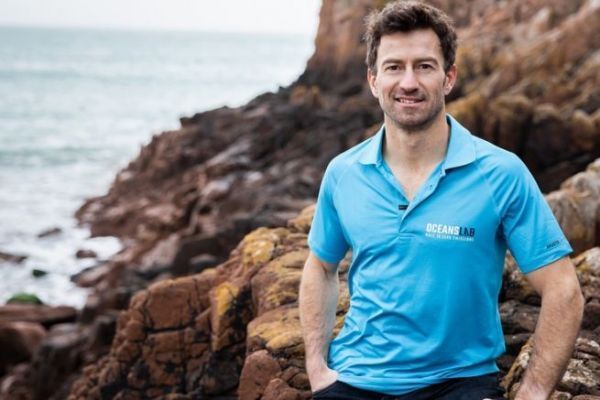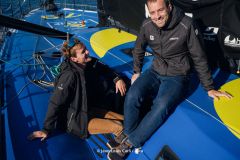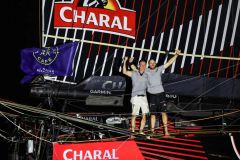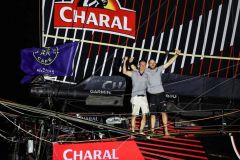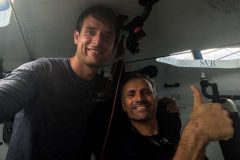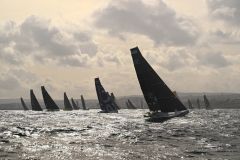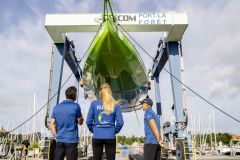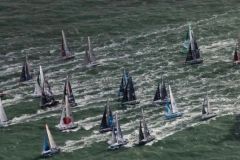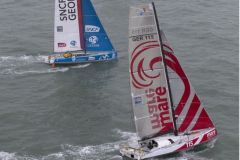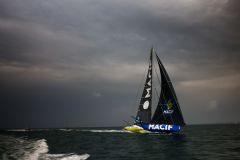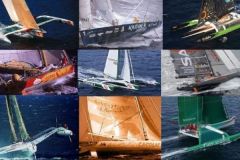A new boat powered by hydrogen
Phil Sharp, British by birth, has been based in La Rochelle since 2017, racing first in the Class40, then in the Figaro Bénéteau. Since 2020, he has been at the helm of Genevos, a hydrogen power solutions company. He is returning to his first love by entering the IMOCA circuit in 2023, with a new boat project as he explains it to us.
"I chose to build a new and innovative boat with a hydrogen fuel cell. This new boat makes sense, because I needed a competitive and innovative platform for this new project. My philosophy, since I started in the Mini 6.50 in 2005, is to be in the game."
During the Mini Transat, he had crossed the Atlantic, as a kind of "pioneer", without fossil energy, with a boat equipped with solar panels. If this equipment allowed him to replace his failing generator, it also brought him autonomy, freedom and reliability.
With this new project, he is going further in this approach to emission-free propulsion. The hydrogen will be used to power the electrical appliances on board and to propel the boat when not racing.
Phil Sharp details there is a real potential for hydrogen. It can be applied to all boats, recreational or professional. Since 2015, we have launched concept and viability studies for an IMOCA project. This is a lightweight system, developed with several technical partners. This prototype has enabled us to develop a turnkey system to produce green electricity. Now, the reliability on the oceans remains to be demonstrated. It is a strong, silent technology that avoids noise and vibrations and accelerates decarbonization. There are many benefits to this transition to hydrogen and green fuel. It could be good to adopt hydrogen in the IMOCA class.
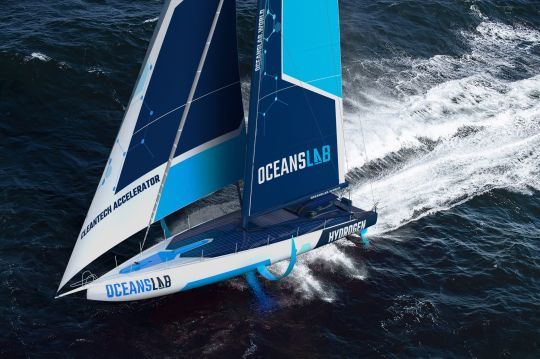
Discussions with Atlantic ports
For his solo round-the-world trip, he will carry 15 kg of hydrogen, equivalent to about 75 liters of diesel. Lighter, it nevertheless requires heavier tanks since the hydrogen must be compressed to 350 bars. In addition, his boat will be equipped with solar panels, a hydro-generator and a wind turbine, which will not be on duty all the time.
Phil Sharp continues: "We have developed a practical system and are working on hydrogen stations to power boats. OceansLab is a pilot in the installation of infrastructures, with other actors. There are several projects underway in ports on the Atlantic coast. We also want to show a solution that corresponds well to a regulation. With OceansLab, we offer a practical and very reliable solution in response to the on-board energy problems that are regular."
A Manuard plan and some optimizations
For his project, Phil Sharp has chosen a Manuard design, whose construction has been entrusted to the Black Pepper shipyard, and whose launch is scheduled for the summer of 2023. The installation of the fuel cell will not require any structural modifications to the boat. Watertight compartments for ventilation, with tanks, will be installed on each side. A hydrogen detector to prevent fire outbreaks will also be installed on board.
Phil Sharp recounts: "I have sailed a lot with Manuard designs, starting with the Mini. They are pragmatic designs. I like the philosophy of the boat and the approach of Black Pepper. It's a simple, high-performance boat, without complexity. It gives you confidence to push it single-handed."
Although it is based on the same plans as the ex-Occitane en Provence, now Bureau Vallée 3, and Initiatives-Coeur, the new IMOCA will have new characteristics, as the skipper explains.
"The concept will be pretty much the same, with optimizations. The bow is smoother, the ballast system optimized and the rudders improved. The foils will be similar to those on Initiatives-Coeur. The specifications are based on a single-handed configuration that will evolve over time for crewed races, and in particular for The Ocean Race 2027. As far as the foils are concerned, we still have some things to learn about trim and stability."
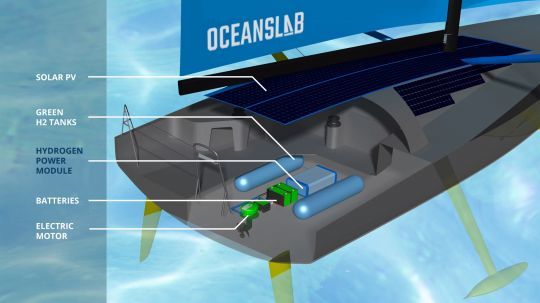
A construction with biosourced materials
In addition to the green energy aspect, the 60-foot monohull will be built with bio-based materials, as he details: "We're going to reuse carbon, because environmentally it's very expensive. We will also use a very innovative system of recyclable resin to show how to use recyclable fiber in performance. We must use and demonstrate the reliability at sea of these technological developments of the future, to show that they can be applied in yachting and other areas. We are in discussions with boatyards to use these new materials."
Through this demonstration, Phil Sharp wishes to go even further in the sustainability process initiated by the IMOCA class: "In the IMOCA processes, we could use this recyclable resin, which can be used even with carbon, and increase the circularity of the boat. The idea is to stimulate the class to make the rules evolve and offer even more opportunities."

 /
/ 